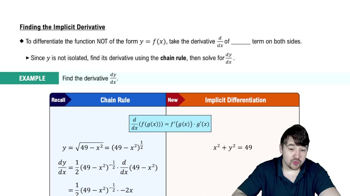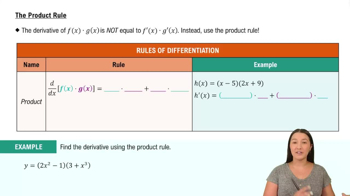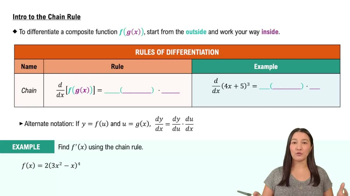In Exercises 53 and 54, find both dy/dx (treating y as a differentiable function of x) and dx/dy (treating x as a differentiable function of y). How do dy/dx and dx/dy seem to be related?
54. x³ + y² = sin²y
 Verified step by step guidance
Verified step by step guidance Verified video answer for a similar problem:
Verified video answer for a similar problem:



 5:14m
5:14mMaster Finding The Implicit Derivative with a bite sized video explanation from Patrick
Start learning